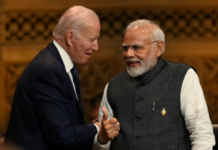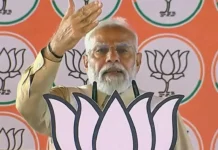 MUMBAI: The Income Tax Appellate Tribunal (ITAT) today stayed a Rs 3,700 crore tax claim by the I-T Department on Vodafone India in a transfer-pricing dispute and asked the telecom company to deposit Rs 200 crore as initial payment and submit bank guarantees for the remaining sum.
MUMBAI: The Income Tax Appellate Tribunal (ITAT) today stayed a Rs 3,700 crore tax claim by the I-T Department on Vodafone India in a transfer-pricing dispute and asked the telecom company to deposit Rs 200 crore as initial payment and submit bank guarantees for the remaining sum.
The ruling comes after the Bombay High Court late last month asked the private telecom service provider to approach the tribunal to seek redressal in the tax claim case.
The tribunal, which granted a six-month stay on the proceedings by tax authorities, did not accept the I-T Department’s demand that the company be asked to deposit at least 50 per cent of Rs 3,700 crore tax claim as a precondition to obtain a stay.
Vodafone spokesman Ben Padovan said the company owes no dues to the government and it will defend itself at appropriate forums.
“Vodafone can confirm that the Income Tax Appellate Tribunal has granted a stay on execution of the transfer pricing order, which Vodafone received in December 2011.
“Vodafone maintains that there is no tax payable on this transaction and will continue to strongly defend its position against this order,” Padovan told PTI in an e-mail.
The case relates to Vodafone’s issue of 2,89,000 shares of its Pune-based BPO arm Vodafone India Services, valued at about Rs 8,509 each, to Vodafone Teleservices Mauritius for Rs 246.38 crore in FY08, which according to the I-T Department was grossly undervalued.
The department made the claim in FY11 and said the deal was undervalued by about Rs 1,300 crore. The total cost of the shares worked out by the tax department is about Rs 1,550 crore, valuing the shares at Rs 53,775 each.
The department claimed Rs 3,700 crore in tax arrears and penalties from the Indian unit of the British telecom major.
Vodafone had argued that the transaction was a capital receipt and hence tax could not be levied on this amount. The company claimed the case did not fall within the transfer pricing ambit and they are not liable to pay tax.–PTI






